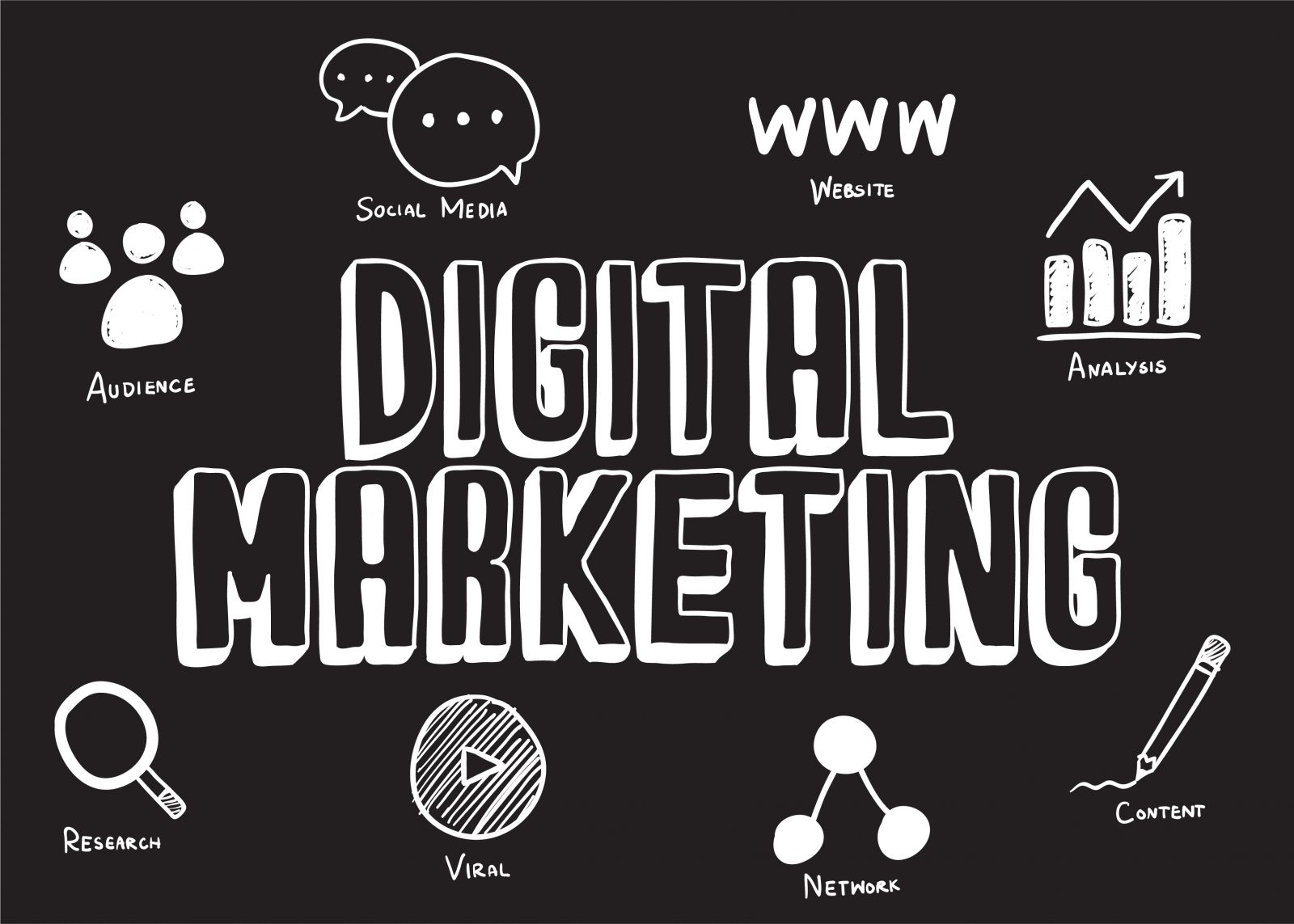The Top 13 Digital Marketing Trends You Need to Know in 2024 |
|
by David Dwyer on 19/05/2024 |
|
From emerging technologies to shifting consumer behaviours, the digital marketing landscape is in a constant state of flux, demanding adaptability and innovation. 2024 is no different, bringing about new and exciting trends that are geeting marketers around the globe excited for what is to come. In this blog, we're going to delve into the future of digital marketing, exploring the top 13 trends that are poised to shape the industry in 2024. From immersive experiences to data-driven strategies, we'll explore the key insights and actionable strategies that will empower businesses to thrive in the ever-evolving digital ecosystem. As a trusted digital marketing agency in Scotland, we’re here to help you understand the trends that will redefine the marketing landscape, empowering businesses to seize new opportunities and navigate the complexities of the digital age with confidence and clarity.
Navigating the top digital marketing trends in 2024In the ever-evolving world of digital marketing, staying ahead of the curve is essential for success. As we step into 2024, it's crucial for businesses to be aware of the latest trends Let us dive deeper into the top 13 digital marketing trends that will continue to define 2024. 1. Immersive technologiesImmersive technologies such as Augmented Reality (AR), Virtual Reality (VR), and Mixed Reality (MR) are revolutionising brand experiences, offering interactive and engaging encounters that captivate audiences. From virtual product try-ons to immersive brand storytelling, businesses can leverage these technologies to create memorable experiences that drive customer engagement and loyalty.
2. Voice search optimisationDid you know that voice search assistants answer 93.7 search queries on average? That's why this tool is becoming increasingly important as consumers rely on voice-activated devices and virtual assistants to search for information and make purchases. Marketers should focus on optimising content for natural language queries, long-tail keywords, and featured snippets to enhance visibility in voice search results and meet the evolving needs of consumers. 3. Interactive contentInteractive content formats such as quizzes, polls, and interactive videos are gaining momentum, offering opportunities for brands to foster deeper engagement and interaction with their audience. Another great example of interactive content is by employing micro-interactions in your website. These are small, purposeful animations that help enhance user engagement. By creating immersive and interactive experiences, businesses can capture attention, encourage participation, and drive meaningful interactions with their brand.
4. Sustainable marketingWith the growing consumer awareness around environmental and social issues, sustainable marketing practices are becoming increasingly important for brands. By embracing sustainability in their messaging, products, and operations, businesses can demonstrate their commitment to corporate social responsibility and appeal to socially conscious consumers who prioritise ethical and eco-friendly brands. 5. Embracing diversity and representationDiversity and inclusivity are integral aspects of modern marketing.Consumers are now expecting brands to embrace diversity and representativeness in their messaging and imagery. According to research, 82% of shoppers will shop at a company with brand values that align with their own, and three-quarters are reported parting ways with a brand over a conflict in values. By adopting an inclusivity mindset, businesses can foster a sense of belonging, build trust with diverse audiences, and create authentic connections that resonate with their target demographic. 6. Privacy-first marketingWith increasing concerns around data privacy and regulations such as GDPR and CCPA, privacy-first marketing practices are essential for building trust and credibility with consumers. Businesses should prioritise transparency, consent, and data security in their marketing strategies, respecting user privacy while delivering personalised and relevant experiences.
7. Incorporating SEO but across channelsToday, search engine optimisation (SEO) isn't confined to website content alone. According to reports, 15% of consumers prefer to search on social media instead of search engines, with Gen Z securing the top spot by 31%, followed by millennials with 28%. By optimising social media profiles, hashtags, captions, and content for relevant keywords, brands can improve their search engine rankings and increase their organic reach. This holistic approach to SEO ensures consistent messaging and visibility across all digital channels, enhancing brand credibility and driving more qualified traffic to websites. 8. Capturing user attention with video marketingVideo continues to dominate digital marketing strategies, offering a powerful medium for storytelling, brand promotion, and customer engagement. Short-form video content on platforms like TikTok and Instagram Reels is particularly popular among younger audiences, presenting opportunities for brands to connect with their target demographic through engaging and shareable video content. 9. Streamlining efficiency with Artificial Intelligence (AI)AI-powered marketing automation tools enable marketers to streamline workflows, personalise messaging, and optimise campaign performance at scale. Based on a survey from McKinsey, 23% of the respondents reported that at least 5% of their earnings before interest and taxes in 2022 can be attributed to their use of AI. By leveraging AI-driven algorithms and data analytics, businesses can deliver targeted and relevant content to their audience, drive conversions, and improve overall marketing efficiency and effectiveness. 10. Automating paid ad campaignsAs digital marketing continues to evolve, automation is becoming a game-changer for paid advertising campaigns. With the rise of artificial intelligence and machine learning algorithms, marketers can now automate various aspects of their ad campaigns, including audience targeting, ad placement, bidding strategies, and performance monitoring. By leveraging automation tools and platforms, businesses can streamline their ad operations, optimise campaign performance in real time, and achieve better ROI.
11. Prioritising UXIn 2024, businesses must focus on optimising conversion rates and enhancing user experience (UX) to drive growth and profitability. From optimising website speed and mobile responsiveness to refining user interface design and implementing persuasive call-to-action (CTA) strategies, brands should prioritise initiatives that will improve their conversion rates and deliver seamless, frictionless experiences for their audience. As businesses navigate the dynamic landscape of digital marketing in 2024, staying abreast of these key trends will be essential for driving success and achieving marketing objectives in the year ahead. By embracing innovation, adopting a customer-centric approach, and leveraging the latest technologies and strategies, businesses can position themselves for growth and competitive advantage in the evolving digital ecosystem.
12. Utilising social media marketingSocial media marketing remains a cornerstone of digital marketing strategies in 2024, offering unparalleled opportunities for brand promotion, customer engagement, and lead generation. With the ever-growing user base on platforms like Facebook, Instagram, Twitter, LinkedIn, and TikTok, businesses can tap into vast audiences and connect with their target customers on a more personal level. By creating compelling content, engaging with followers, running targeted ad campaigns, and leveraging influencer partnerships, brands can effectively boost their online presence, drive website traffic, and generate meaningful interactions with their audience. 13. Generating high quality EEAT contentIn the era of E-A-T (Expertise, Authoritativeness, Trustworthiness), content quality and relevance have never been more critical. Search engines prioritise content that demonstrates expertise, authority, and trustworthiness— with experience added in last year — rewarding websites that publish high EEAT (Expertise, Authoritativeness, Trustworthiness) content with higher rankings and better visibility. By consistently producing high-quality content that aligns with E-E-A-T principles, brands can establish themselves as industry leaders, build credibility with their audience, and drive organic traffic to their websites. Supercharge your marketing strategy with Inspire Digital
|
|
Digital Marketing, Digital Trends
|
|
PREVIOUS ARTICLE
|



























